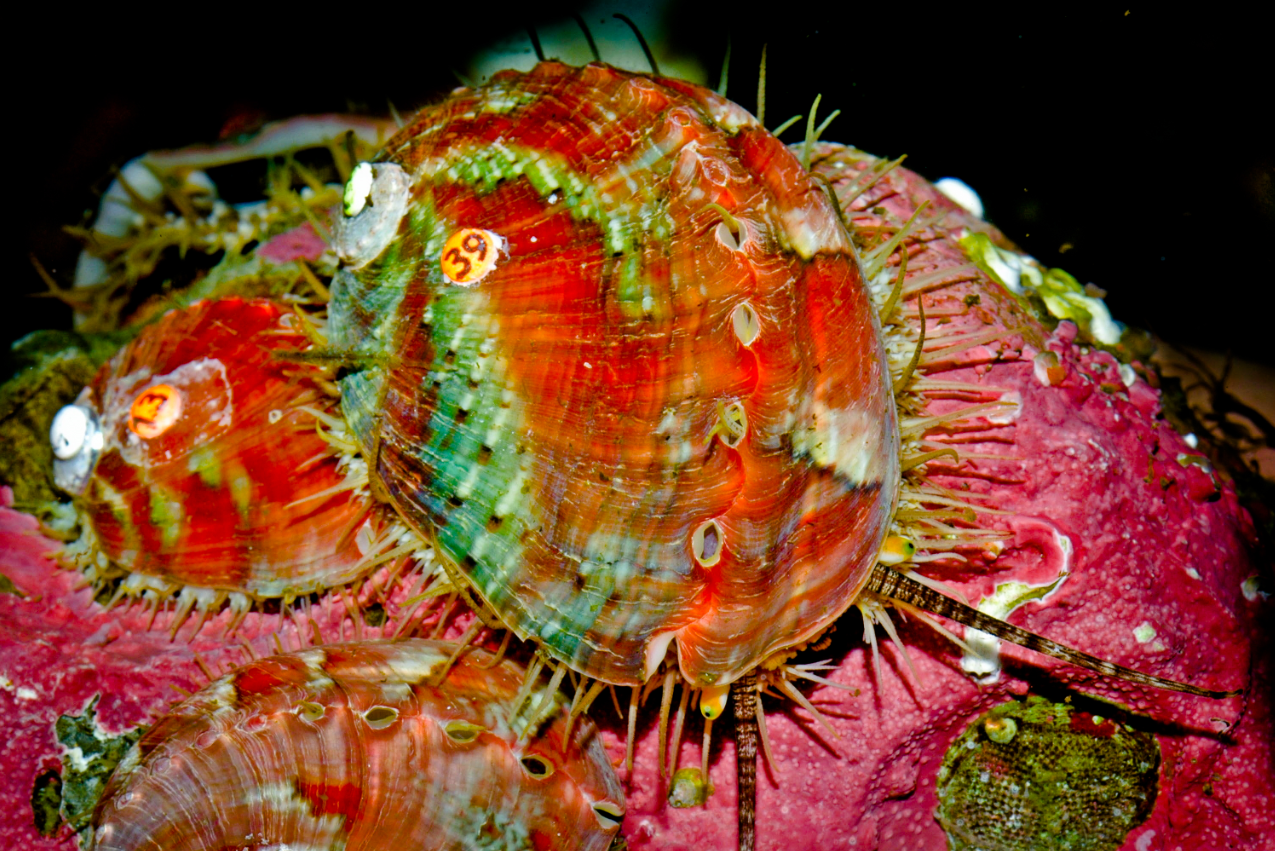Restoring the Iconic Pinto Abalone in the Salish Sea
Video recording of this presentation.
Populations of the native Pinto abalone, Haliotis kamtschatkana, have declined precipitously in the Salish Sea during the past few decades due to overexploitation. Despite fisheries closure, populations have not recovered because they are too small for reproduction to occur in the wild. My lab collaborates with the Puget Sound Restoration Fund and government agencies to restore abalone populations in the Salish Sea. In my talk, I will report the results of WWU student projects focused on three aspects of restoration: optimizing rearing of juveniles at the hatchery, outplanting larval or juvenile abalone, and monitoring abalone at outplant sites.

About the Speaker

Dr. Deb Donovan completed her PhD at the University of British Columbia where she studied the energetics of locomotion of the Pinto abalone, Haliotis kamtschatkana. She is generally interested in how marine invertebrates physiologically and morphologically respond to environmental change. Her research has come full circle and her lab is currently focused on Pinto abalone restoration, since local populations have declined precipitously in the last few decades. Dr. Donovan holds a joint appointment in the WWU Biology Department and the Science, Mathematics, and Technology Education Group. She enjoys running, knitting, weaving, and spending time with her family.
Environmental Speaker Series
The Environmental Speaker Series is hosted by the College of the Environment at Western Washington University.
The Series is free and open to the public. Talks are held each Thursday at 4:30 pm in Academic Instructional Center West room 204 - AW-204. Talks will also be streamed via zoom. Register with the Alumni Association for the zoom link. Paid parking is available in lot C.
Learn more about the Environmental Speaker Series
Subscribe to the Email List